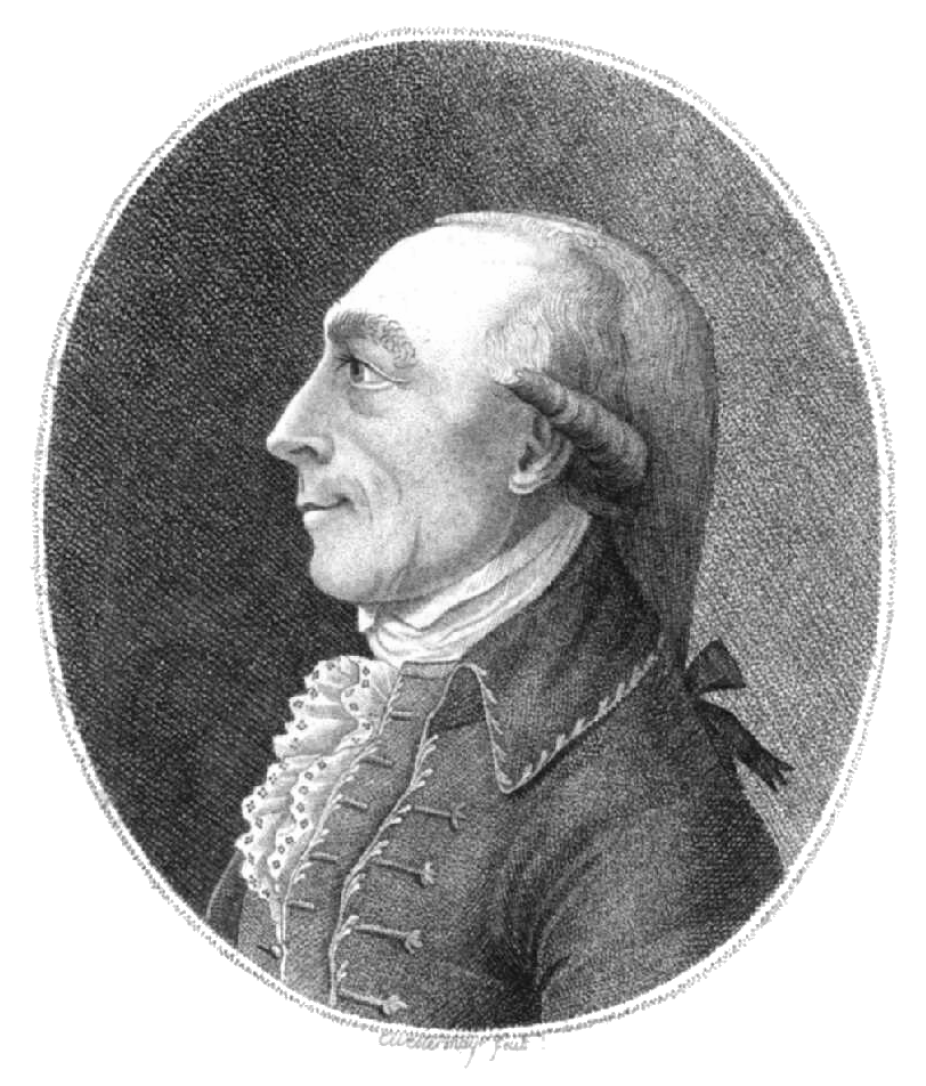Johann Hieronymus Schroeter (1745–1816)
Johann Hieronymus Schroeter was born on August 30, 1745 in Erfurt, Germany. In 1764 he began his studies in Law at Göttigen University, during which he developed an extra curricular interest in mathematics and astronomy. Upon graduation he embarked on a high level administrative career that occupied him fully for the following ten years. Schroeter's astronomical leanings were rekindled via his interest in music, which led to his acquaintance with the Herschel family and with their son William (formerly Wilhelm) in England, who was to become the foremost astronomer of the eighteenth century.

Portrait of Johann Schroeter.
Wikipedia
Schroeter began his full fledged astronomical life in 1772, upon founding of his Observatory in the small town of Lilienthal. Financially secured through his appointment as district governor and judge, he carried out planetary and solar observations almost continuously for the rest of his life. Many of his telescopes were purchased from William Herschel in England, with whom he also exchanged scientific correspondence. Schroeter's Lilienthal observatory was for a time home to the largest telescope in continental Europe.
Schroeter was primarily interested in solar and planetary astronomy. He was the first, in 1787, to notice and comment upon the solar surface feature now known as granulation. He also gave detailed descriptions of light bridges over the umbrae of sunspots. He carried out many observations of Venus and tried to determine its rotation period. His two volumes on Lunar topography reached levels of detail that were to remain for many years unsurpassed.
On September 20, 1800 Schroeter presided over the founding of the first astronomical society, with members distributed all over Europe. One of the foremost aims of the Society was to organize a systematic observing program to detect a planet between the orbits of Mars and Jupiter. By 1807 various members of the society had discovered the four large asteroids Ceres, Pallas, Vesta and Juno. Schroeter's reputation in planetary astronomy was sufficient to attract Friedrich Wilhelm Bessel (1784–1846) to Lilienthal, where he remained for a few years as an assistant.
In 1810 the Napoleonic invasion of Northern Germany brought dire times to Lilienthal—in particular in 1813, when retreating French imperial troops destroyed a good part of the town. Although Schroeter's observatory and instruments were left untouched, he lost many of his observational notebooks and unpublished scientific manuscripts, destroyed along with the Lilienthal town hall. Schroeter died in Lilienthal on August 29, 1816.
Bibliography
Berry, A. 1898, A short history of astronomy, [1961 Doverreprint].
Gerdes, D. (ed.) 1995, Johann Hieronymus Schroeter: Beobachtungen.